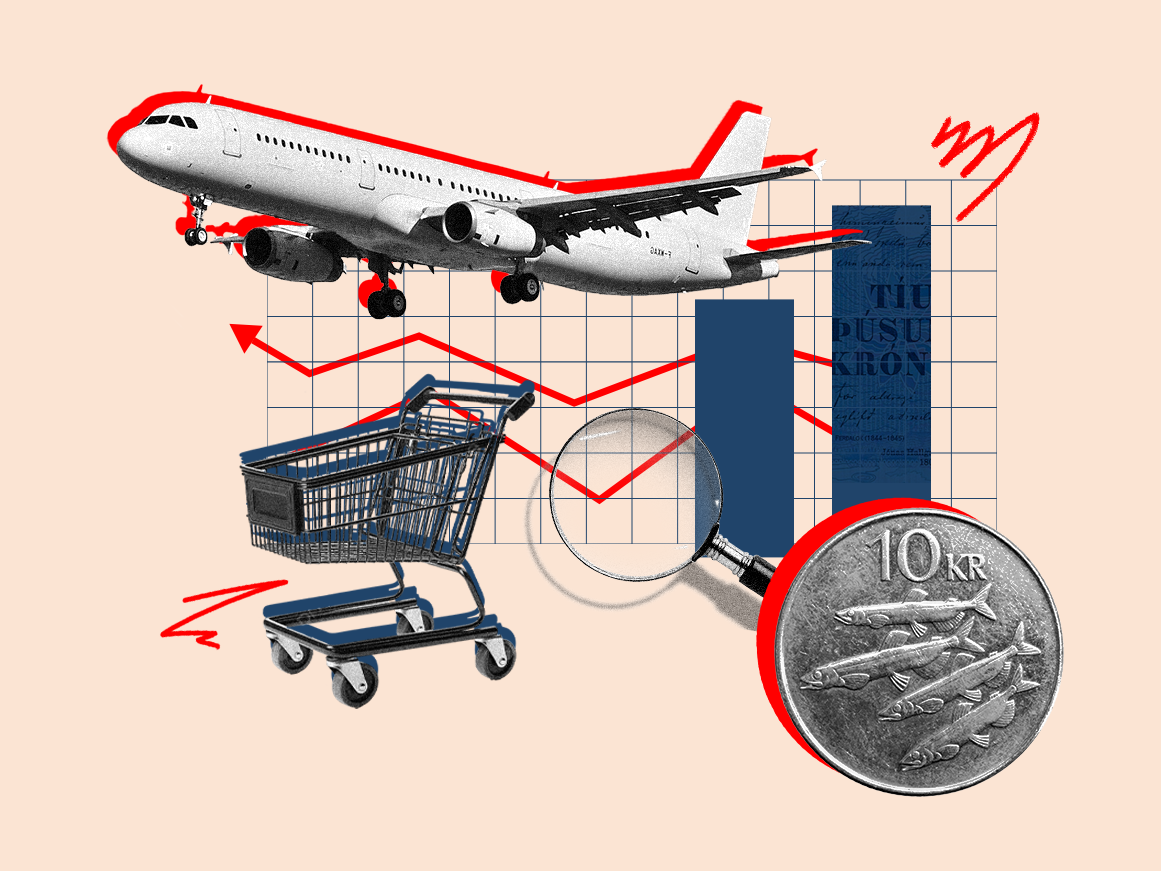Growth in the shadow of inflation

All these eventualities are overshadowed by the tragic war in Europe. Its impact on Iceland is fortunately minimal, manifesting first and foremost in increased inflation. Higher and more persistent inflation will be a feature of the coming 1-2 years and we expect the Monetary Policy Committee of the Central Bank of Iceland to respond with considerable policy rate hikes throughout this year. The fact that collective bargaining agreements are up for renewal coinciding with the rise of the inflation spectre complicates the matter considerably. We expect slow increase in purchasing power during the forecast period to reduce consumption growth which will nevertheless remain fairly strong, fuelled among other things by savings accumulate during the pandemic.
Key points from the economic forecast
- We expect GDP in Iceland to increase by 5.1% in 2022. Export increases by just over 19.4%, private consumption by 3.5% and total capital formation by 6.2%. Uninterrupted economic growth is expected over the coming two years; 3.7% in 2022 and 2.8% in 2024.
- Around 1.5 million tourists are expected in 2022, 2 million in 2023 and 2.4 million in 2024.
- Unemployment levels will recede as the year progresses and in coming years, with registered unemployment expected to average 4.5% this year, dropping to 4.2% next year and to 3.9% in 2024.
- The trade balance is expected to be positive at 0.7% of GDP on average in the forecast period.
- Inflation will peak in the third quarter of this year and remain above target to the forecast horizon. Inflation is estimated to average 7.4% this year, 5.8% next year and 4% in 2024.
- The forecast assumes a considerable increase in policy rates this year and for the policy rate to stand at 6% at year end. We may see the beginning of a rate-cut cycle next year and forecast a policy rate of 5.5% at year-end 2023; 4% at year-end 2024.
- Housing prices have surged. We assume that a sort of tolerance limit has now been reached and expect to see slower price growth moving forward. We forecast a 20% increase this year, between annual averages, 8% in 2023 and 4% in 2024.
- According to the fiscal budget, the State deficit will lessen during the forecast period. With this in mind, we forecast rather slow growth in public consumption, or 1.5% per annum, up to the forecast horizon.
These are among the highlights of the economic forecast of Landsbankinn Economic Research, looking forward to year-end 2024.









